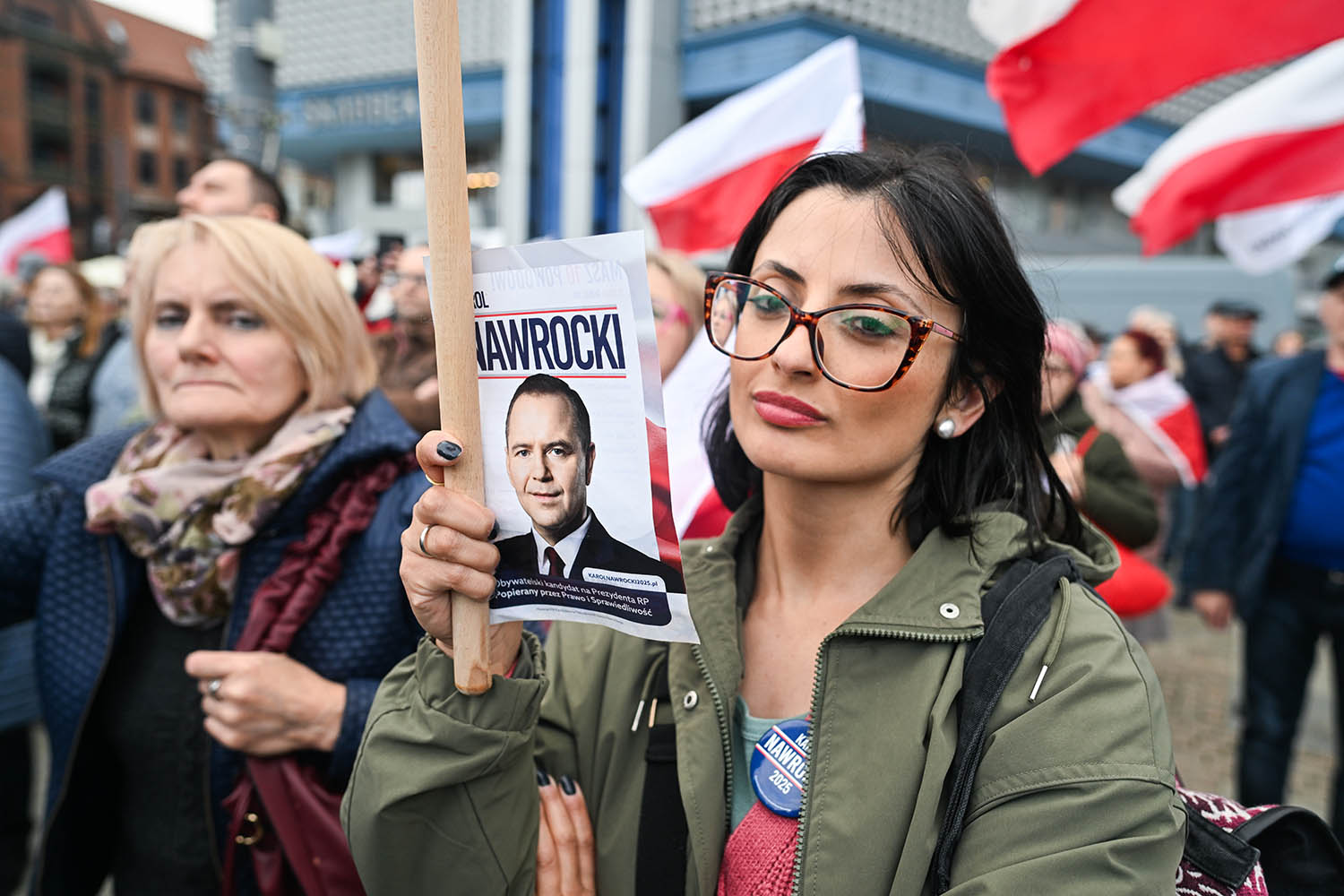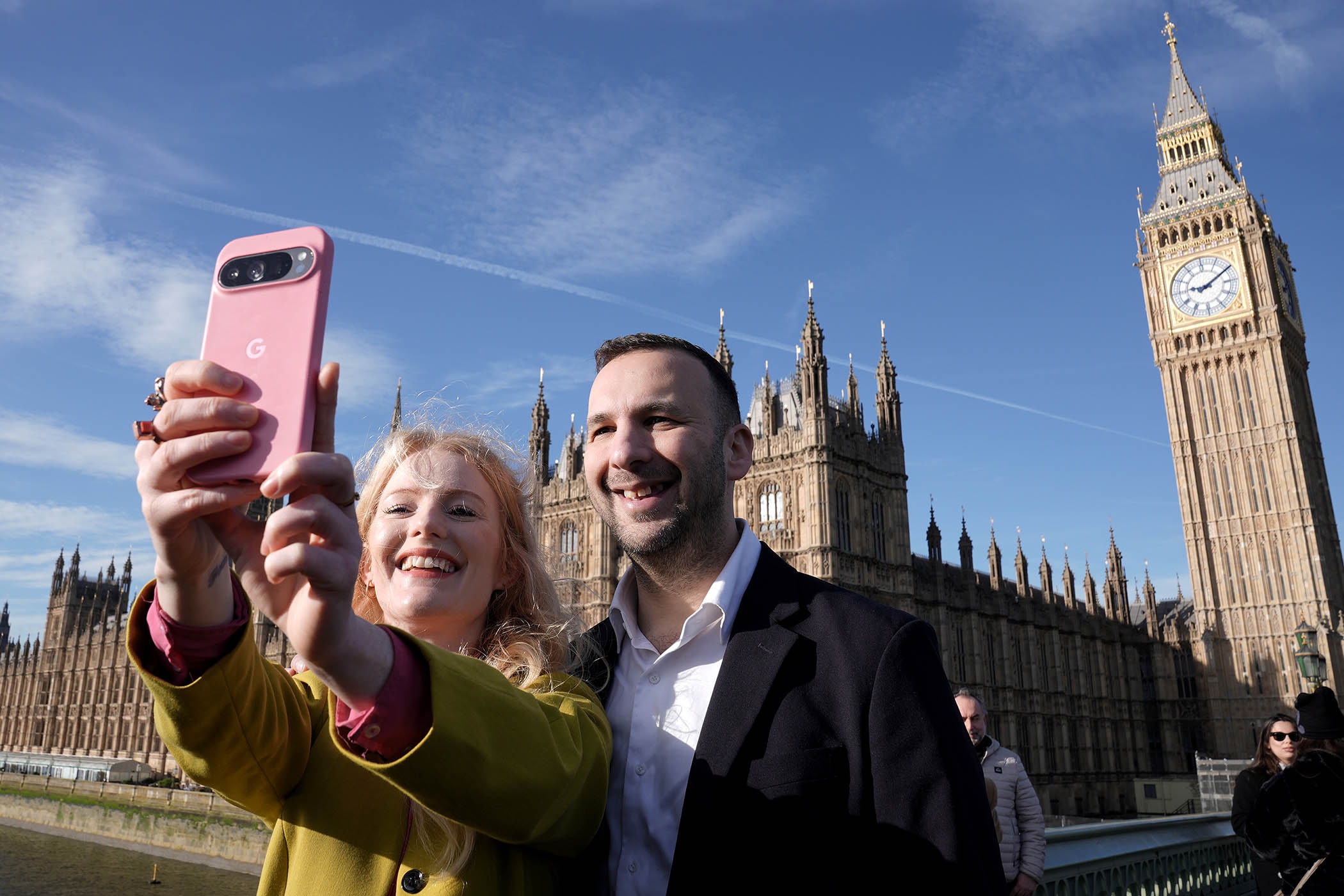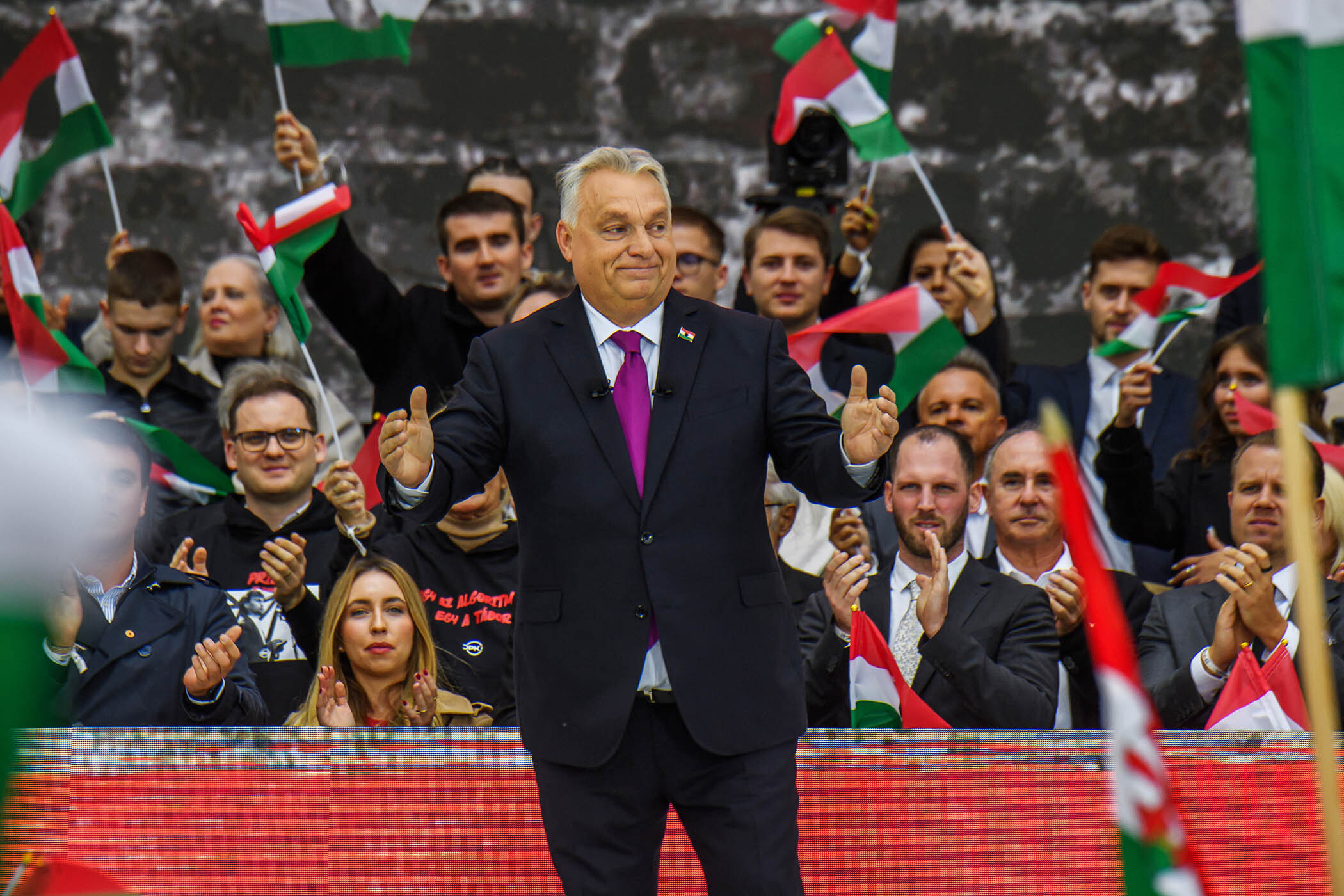“I am sorry, because you were all expecting more – faster, stronger,” shouts Donald Tusk, eyebrows furrowed, sleeves rolled up, to an enthusiastic crowd of tens of thousands of supporters in the heart of Warsaw.
Apologising for your record in government may not sound like the ideal campaign message, but it has become the last great hope of Tusk’s centrist Civic Coalition ahead of presidential elections on 1 June.
Tusk became prime minister in December 2023, ending a turbulent period of rule by the rightwing populist Law and Justice (PiS) party. Over eight years, the PiS government weakened Poland’s system of checks and balances, appointing loyalists to run the state broadcaster and independent agencies, politicising the courts and using public funds for electoral gains. PiS also managed to severely strain relations with Brussels, leading the EU to freeze part of its financial support. But the country, deeply embedded in the single market, continued to attract foreign investment and push its “economic miracle”.
Tusk pledged to restore the rule of law and hold his predecessors accountable. But the presidency remained in PiS’s hands, allowing President Andrzej Duda to block the attempted reforms at every step. If the Civic Coalition’s candidate, Rafał Trzaskowski, the current Warsaw mayor, wins the second round this weekend, Tusk argues, they can finally deliver what they promised.
“I am asking you, sincerely: give us the strength to change Poland, just as we promised. [...] I haven’t forgotten a thing,” he tells the crowd.
But many of those who helped elect Tusk in 2023 are less willing to back his party this time around. On the fourth floor of a rundown building in central Warsaw, Marta Lempart, leader of the pro-abortion rights movement, the Polish Women’s Strike, does not hide her frustration towards Tusk’s government. “Nothing is happening. This is an anti-democratic government: a majority supports legalising abortion and introducing civil partnerships,” she says. “They’ve completely abandoned this agenda.”
Lempart rose to prominence in 2020 by spearheading huge protests across the country in response to a controversial ruling from the Constitutional Tribunal, a body in the grip of Law and Justice, which made abortion access one of the most restrictive in the EU.
Those protests helped to shape a new generation of political activists, such as Paula Wasiluk, who is now part of an advocacy group for young people. Abortion tops her list of concerns, but she also worries about housing, due to the lack of affordable rental flats for students and young professionals.
“Despite the promises, no social housing scheme has materialised,” she says. “Instead, the government has focused on reducing healthcare contributions for business owners.”
Our pro-European anchorage is fragile and things could descend into chaos
Our pro-European anchorage is fragile and things could descend into chaos
Szymon, finance worker
The impression that nothing is changing has pushed young people away from the duopoly that has dominated the Polish political scene for the past two decades. If Poland’s political future were decided by the under-30s, neither of the two remaining candidates would have made it to the final stage.
Newsletters
Choose the newsletters you want to receive
View more
For information about how The Observer protects your data, read our Privacy Policy
In the first round of the election two weeks ago, nearly 35% of that age group backed Sławomir Mentzen, the far-right Confederation candidate, while nearly 20% voted for Adrian Zandberg, positioned on the far-left of the political spectrum. Disproving the stereotype that young people aren’t interested in politics, turnout among this age group reached a record-breaking 72.8%, well above the national average of 67.3%.
A crucial question for the second round is how will those who backed these anti-establishment candidates two weeks ago cast their ballots?
Trzaskowski came out on top in the first round with 31.4% of the vote, but the PiS-backed candidate Karol Nawrocki was just two percentage points behind. With two far-right candidates in third and fourth, some analysts believe Nawrocki might now have the edge.
Nawrocki has been grappling with scandals linked to alleged ties with criminal networks, something Trzaskowski has emphasised in his own campaign speeches. “Unlike my opponent, I promise you honesty, decency and transparency,” he said.
At the Warsaw rally, waving national and EU flags high in the air, the crowd chants: “All of Poland, for Rafał!” But even supporters of Trzaskowski realise that’s not strictly true. “The first-round results were a highly alarming surprise for all of us,” says Szymon, a finance sector employee who joined the rally with his 18-year-old daughter. “Our pro-European anchorage is fragile, and things could descend into chaos,” he adds.


